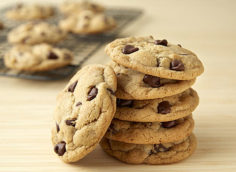It's highly probable, my heavily muscled friend, that you are a yo-yo dieter. (You're probably a bed wetter too, but that's the subject of another article.)
While once thought to be the purview of women who watch daytime TV, bodybuilders are just as likely to suffer from the metabolic effects of frequent weight fluctuations.
The list of nasty side effects is long: thyroid (T3) suppression, leptin suppression, muscle loss, depressed metabolism of about 10-15%, increased lipoprotein lipase activity and fatty acid synthase function, and exaggerated insulin action.
Add to that the very real concept that yo-yo dieting "awakens" fat cells that were previously non-functioning and you've got yourself one hefty case of metabolic damage.
And although one might argue that many of these variables return to normal in a few weeks or even days post-diet, researchers know "...studies have demonstrated that full recovery from weight loss may take months or years."(12) For purposes of illustration, let's compare two mock case studies, one focusing upon a serial dieter who reads too many tabloids and the other of a less typical, 20-something male bodybuilder.
Maggie McButterpants
Maggie is 38 years old, depressed, frustrated, and fat. She just doesn't feel like herself anymore. Looking in the mirror at her butt she thinks: "Can that thing really be mine?" She's too young to feel this way. She's lethargic, cloudy-of-mind, and embarrassed of her appearance. It is true that she wasn't always heavy. That junk in her trunk was never enough to open a salvage sale before! So what happened?
Unbeknownst to her at the time, Mrs. McButterpants started down a primrose path at a younger age. When she was 26 she decided the "Freshman 15" she had added in college now had too much company.
She wasn't fat, per se but wanted to lose 10-15 vanity pounds. She decided to fast for a few days to "get the ball rolling," then switch to a fast-slim drink mix from the local grocer. You know where this is going. She lost 4 pounds in the first week – half way to her goal. Hurray! But alas, somehow, two months later she had gained back the total of eight pounds she lost, plus three more. How could this be? (Of course we know, just see paragraph four of this article).
A year later, a magazine with a grapefruit-based diet made its way to her desk at work. Mrs. McButterpants stopped eating anything but these bitter fruits for three weeks. It was tough but worth it. She dropped four pounds in the first 10 days. "Hmm; pretty good progress," she thought.
A supportive boyfriend agreed and complimented her. But you know where this is going. She kept up the diet, increasingly with "modifications," for another three weeks. Yet within two months she had gained five pounds and within three months she had gained a total of eight. Guess why. Talk about reaping bitter fruits.
Then a friend at work recommended a cortisol-related (or was it growth hormone-related?) slimming supplement. Her friend insisted that her niece melted fat while she slept. No effort necessary, according to this colleague, just a pill at bedtime. It was expensive but as the marketing persuades, "sometimes a pill is worth that second mortgage" (or something like that).
After all, she was indeed now fat beyond a few vanity pounds. She lost a pound and a half in three weeks, perhaps from water losses due to eating fewer carbs, perhaps from more attention to her diet, and admittedly perhaps even in part due to the pill.
Disappointed and emotionally distraught, Mrs. McButterpants gave up... until the next diet came along.
Mike Mirrorowski
Mike is no dummy. As a "former fat boy" (FFB), he's not about to go back to dough boy status. He's not about to act like some fasting, starvation-diet-struggling housewife. After all, he's been reading muscle magazines for two years!
Armed with this newfound enormity of "knowledge from the pros," he decided to compete. For his first show he "dieted" (restricted) pretty harshly for 12 weeks, checking every nuance of his aesthetic progress often. Although tough, his discipline got him through. To make a long story short, he dropped his relative fat percentage from 14 to an amazing 5, although he didn't place.
But Mr. Mirrorowski would not be defeated! After taking some time to bulk up and add 8-10 pounds of "mass," he redoubled his efforts later that year, this time extending the diet period to 16 weeks.
He now targeted carbohydrate reduction to a much greater extent. Fatigue hit hard, even though it did become less severe over the first couple of weeks. The aesthetic flatness bothered him during his frequent mirror checks, but the guys at the gym knew about his contest preparation and previous defeat. There was no turning back.
He struggled onward with religious post-workout "cardio" and energy deprivation, eating between 1600-1800kcal from the get-go. Again, Mike was partially rewarded with a very low percent fat, perhaps 3-4%, and placed fifth (out of eight) in a local show.
Motivated by his relative win and greater effort, Mr. Mirrorowski competed one or twice per year with his "successful" formula, for the next six years. Although he may have only added two to three pounds of actual muscle mass over this time, he felt stirrings of pride.
He was indeed a disciplined lightweight competitor. Sometimes he placed as high as 3rd, sometimes he didn't make the final cut due to "judging politics." On the years when no competitions landed in the spring or summer, he would diet a second time, getting ripped "out of self respect" during these poolside seasons. As he aged a bit, he did notice that pre-season prep became tougher, but he now had the experience to know that sometimes a harsh, disciplined diet took 22-24 weeks or even a little more.
By the time Mike was 35, however, he noticed that despite thrice weekly lifting (he had to work at the office more these days to support his home, so five times weekly was out), he was probably in the upper teens, body fat percentage-wise. And he weighed about 15 pounds more than he used to as an off-season twenty-something.
Considering work demands, he had a hell of a time losing more than three to five pounds and each time he tried, it came back fast. And let's not even get into the annual few pounds of fat gained during the holidays. Ultimately, before he was even 40, Mike was no longer a FFB. In fact he was closer to his old full-blown FB status than he ever imagined back when he was competing.
Analysis
Emotionally, we've seen two very different pictures, haven't we? You can clearly see frustration and depression (case #1) versus some growing confidence despite setbacks (case #2).
But perhaps you're thinking that it's blasphemy to even compare a typical American housewife to a bodybuilder! In part you're right. I'll tread carefully. I'm no psychologist but I do know a few things about the human body, so let's consider something else.
What do you think these two cases are like biologically? Take a minute and pick out the differences and similarities. Sure, Mr. Mirrorowski weight trained, apparently preserving, if not adding a little muscle mass. This is a huge difference from the housewife. But how much muscle do you think he might have added over six years without bi-annual diet phases? Could he be a middleweight? Would he have gotten big enough to get noticed with his shirt on?
Maybe over the course of his adult life he would have a better, stronger, more athletic physique had he focused more on healthful, aggressive lifestyle habits and less on the mirror. He may even have felt more content and less anxious with this latter approach – even as he aged into to a 40-year-old body of which he could be proud.
What strikes me about these two examples is the weight cycling that's going on. Lose 10% of your body weight, then gain it all back. Lose 15 pounds, then gain 17 back.
Whether it's luncheons with coworkers ruining a diet, or ramped up eating and relaxation after contest season, the physical effect is similar. This weight cycling effect has indeed been observed in healthy young active men on a 1000kcal daily deficit over eight weeks:
"At five weeks post... fat mass had significantly increased over initial levels."(12)
I don't think that bodybuilder-specific rebounds are as detrimental as those described in a fairly grisly talk on yo-yo dieting by Frank Katch at the 2004 ASEP conference, but I do think that over time, body composition and performance suffer. Aside from carefully chosen, rare competitions (which allow realistic time for actual physique change among natural guys, incidentally), I'm going to agree with researchers who state:
"Although conclusive data regarding long-term health effects [disease not aesthetics] of weight cycling are lacking, nonobese individuals should attempt to maintain a stable weight. Obese individuals who undertake weight loss efforts should be ready to commit to lifelong changes in their behavioral patterns, diet, and physical activity." (1)
Protecting Yourself:
I don't expect many readers to stop "dieting" (getting into negative energy balance for months at a time) just because of me. I know that I'm not going to change the whole subculture of bodybuilding and fitness. I've been there. Back stage. On stage. You name it. Indeed, I know that competition and other events sometimes call for it. What I can do, however, is to help educate readers with a few damage control suggestions. Note that some of these are best guesses from animal data, personal experiences with realistic time frames, etc. Here we go...
- Self-determine a concrete weight goal and get there with regularly-spaced healthy meals while accepting a little hunger/ discomfort at times as natural, not negative. Keep emotions out of it. Stress coping strategies and social support matters a lot. (6)
- Lose 5-10% body weight, max (unless obese); if you need to lose more, hold this new "midpoint" body weight for at least 2-3 months before progressing further.
- Shoot for a minimum 6-8% body fat if you're typically in the low teens.
- Unless you have unique reasons, regain slowly over 8-12 weeks (perhaps adding 200 daily kcal every 2-3 weeks) to a body fat that's just half-way between your usual and your dieted level; hold it there for 8-12 more weeks before allowing it any higher. Your future body comp may be at stake during this (estimated) sensitive period!
- Try keeping dietary fat to less than 30% of early re-feeding kcal.(5, 13)
- If you like high fat diets, even during post-diet phases, keep fish oil intake in check (4), yet not at zero, as it's a good time to compensate for levels of lost n-3 fatty acids from dieting [13, 17]). * In fact, if kept to reasonable levels, fish oils don't seem to activate pre-adipocytes like some long chain fatty acids do. (8)
- Consider consuming safflower oil as part of your dietary fat, as it may be better for adding lean tissue vs. fat during a refeed. (4) *
- Note that saturated fat appears to triple the rate of fat cell hyperplasia (number), so other than using the safflower oil, consider avoiding sat-fat and instead increase medium chain triglycerides, as they don't seem to facilitate activation of pre-adipose cells and result in less fat gain than longer chain fatty acids.(8, 9, 14) *
- Although data in humans is still lacking, the t-10, c-12 isomer of conjugated linoleic acid may also interest you (in small amounts), as it appears to be the isomer that reduces fat cell filling and stimulation of pre-adipocytes.(2, 7, 16)
- Insulin and the insulin: glucose ratio aren't a big part of weight regain, at least in rats.(4) So specifically targeting carbohydrate restriction doesn't make much sense; dietary fat control is a better choice due to the fat cell activation issue.
- Lean toward physical activity vs. caloric restriction when leaning-out, perhaps 70/30 of your efforts (low-mod intensity cardio doesn't add to training volume, and you won't deny yourself nutrients).
- Start a new activity in the opportune days of summer if you live in a cold or dismal climate. It's little wonder Clevelanders are so fat; six months of the year they endure daily freezing rain and it gets dark at about 4:00 PM, putting everyone in "couch mode."
- During the holidays, keep up the activity! Excess kcal coupled with a rebound in lipogenic enzymes from a relaxed training schedule are not good things. Your fat cells could multiply like rabbits on Viagra – or at least fill up nice and plump. The average American gains 5-10 pounds throughout October-December (probably the source of their small annual weight gain as they look back over the years). In addition to the gym, whenever weather permits, get your butt outdoors! Turn those heavy meals into muscle.
* Note: Refeeding type matters little, beyond keeping total fat intake down to 20-25% during early periods of weight regain.(5) We're just exploring bleeding-edge possibilities as tweaks for a best-case result!
I guess in the end I'm just saying that frequent frivolous target-date types of diets are not the best solution for a heroic, truly athletic body. This is particularly true as we age into what could be peak physical years (30s and 40s).
As a 30-something, I am fatter than I used to be and I believe weight cycling had something to do with it. Now, I don't regret strategic, clean mass-building phases but I do think I dieted and bulked (weight cycled) without full awareness of possible consequences. I didn't realize that fat gain is actually easier when someone has cut his work outs and "dieting," compared to someone who's been steadily sedentary all along.
I didn't know that there was literature out there (however controversial) that heart disease and other risks could increase. I want to keep yo-yo syndrome from happening to you.
All I ask is that you plan your post-diet phase just as carefully as you planned your cutting phase.
Here's to a heroic, year-round physique!
References and further reading:
- Anonymous. Weight cycling. National Task Force on the Prevention and Treatment of Obesity. JAMA. 1994 Oct 19;272(15):1196-202.
- Brown J et al. Isomer-specific regulation of metabolism and PPARgamma signaling by CLA in human preadipocytes. J Lipid Res. 2003 Jul;44(7):1287-300.
- Brownell K et al. Medical, metabolic and psychological effects of weight cycling. Arch Intern Med. 1994 Jun 27;154(12):1325-30
- Dulloo A et al. Differential effects of high-fat diets varying in fatty acid composition on the efficiency of lean and fat tissue deposition during weight recovery after low food intake. Metabolism. 1995 Feb;44(2):273-9.
- Dulloo A et al. Influence of dietary composition on energy expenditure during recovery of body weight in the rat: implications for catch-up growth and obesity relapse. Metabolism. 1992 Dec;41(12):1336-42.
- Elfhag K et al. Who succeeds in maintaining weight loss? A conceptual review of factors associated with weight loss maintenance and weight regain. Obes Rev. 2005 Feb;6(1):67-85.
- Granlund L et al. Trans10, cis12-conjugated linoleic acid prevents triacylglycerol accumulation in adipocytes by acting as a PPARgamma modulator. J Lipid Res. 2003 Aug;44(8):1441-52.
- Grimaldi P et al. Long chain fatty acids as modulators of gene transcription in preadipose cells. Mol Cell Biochem. 1999 192:63-68.
- Hwang S et al. Influence of dietary medium- and long-chain triglycerides on fat deposition and lipogenic enzyme activities in rats. J Am Coll Nutr. 1993 Dec;12(6):643-50.
- Ide T. Interaction of fish oil and conjugated linoleic acid in affecting hepatic activity of lipogenic enzymes and gene expression in liver and adipose tissue. Diabetes. 2005 Feb;54(2):412-23.
- Lim K et al. Effects of intermittent food restriction and refeeding on energy efficiency and body fat deposition in sedentary and exercised rats. J Nutr Sci Vitaminol (Tokyo). 1996 Oct;42(5):449-68.
- Nindl B et al. Physical performance and metabolic recovery among lean, healthy men following a prolonged energy deficit. Int J Sports Med. 1997 Jul;18(5):317-24.
- Sea M et al. Weight cycling-induced alteration in fatty acid metabolism. Am J Physiol Regul Integr Comp Physiol. 2000 Sep;279(3):R1145-55.
- Shillabeer G et al. Regulation of new fat cell formation in rats: the role of dietary fats. J Lipid Res. 1994 Apr;35(4):592-600.
- Sugden M et al. Caloric restriction leads to regional specialisation of adipocyte function in the rat. Biochim Biophys Acta. 1999 Feb 25;1437(2):202-13.
- Wang Y et al.
Conjugated linoleic acid and obesity control: efficacy and mechanisms.
Int J Obes Relat Metab Disord. 2004 Aug;28(8):941-55.
- Yosefy C et al. Repeated fasting and refeeding with 20:5, n-3 eicosapentaenoic acid (EPA): a novel approach for rapid fatty acid exchange and its effect on blood pressure, plasma lipids and hemostasis. J Hum Hypertens. 1996 Sep;10 Suppl 3:S135-9.




